

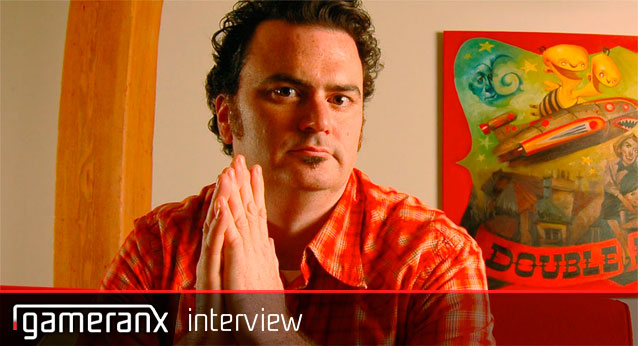
Gameranx: As with most Double Fine games, Trenched doesn't exactly stick to a “normal” videogame mold. In fact, I feel pretty confident in saying that it's the first entry in the “World War One mechs fighting televisions” genre. So, where'd the idea come from?
Tim Schafer: Trenched was one of the first Amnesia Fortnight projects we ever did, where we split the company into four groups, and each group did a game. Brad Muir was one of the people I thought could lead one of those teams, and it was really just his concept. He wanted to do something wave-based – you know, with all the defenses – and it kind of evolved into this mech shooter tower defense game. You'll have to ask him if you want to know where it came from, because it came from his mind.
But it's kind of similar to Brutal Legend in that it's a genre that's usually a little more removed – like RTS or, in this case, tower defense – that puts you on the battlefield in the middle of the action.
Some of the themes represented in Trenched are surprisingly heavy. I mean, you've got crippled soldiers, the idea of television as an inherently distorted view of the world, and things of that nature. Are you going down that path solely in the name of pulpy action, or is there some sort of stronger message embedded within Trenched? Moreover, do you think a humorous piece of entertainment has any right to make that kind of broad, all-encompassing statement?
Oh sure. I mean, I don't think there's a deepness behind Trenched unless it's subconscious. I mean, it's all in the eye of the viewer. I didn't go into Trenched trying to send any kind of message. Maybe Brad is trying to... no [laughs].
You've spoken before about the value of individual creativity in the game development process – as opposed to the almost hivemind-like team focus we see from many major triple-A releases. So how does the process work at Double Fine?
Well, the first step is the relationship that's formed between me and someone like Tasha, Lee, Brad, or Nathan or one of those people who seem to have a vision for a game and the ability to get it made. So it's more like, well, something I learned at LucasArts, which is that you don't make bets on ideas; you make bets on people. So it's really the people who seem like individuals who can get the job done. So it's more like I ask them “Would you like to lead a project? What would you do if you could?”
So I worked with them, heard their ideas, and talked with them and developed what [those ideas] could be. And then they really just took it on themselves. They got their own teams together and developed the games on their own.
How has working on such a wide variety of projects affected Double Fine's day-to-day operations? I have to imagine that going from monolithic multi-year development cycles to projects that are short, sweet, and completely off-the-wall is pretty invigorating, after all.
Yeah, we really like it. It's this huge morale boost with everyone just having so many different things going on. When you walk down the hallway and see that every hallway has something different going on – someone else's idea coming to life – it is really invigorating. You know, not having to worry about being stuck in the world of, say, heavy metal for five years. We get to jump to different things, and that's been really fun for me. Speaking on my own behalf, I love it.
I think that this setup is just more in tune with how my brain works. Like, I'm really not a focused person. I like to think about a lot of ideas at once, so it matches that.
So is this the way Double Fine plans on developing games from now on? Are bigger games out of the picture for now?
Yeah, I think the little projects, smaller projects is the way I want to go – except throw some bigger projects into the mix too. So we'll do a mix of big and little projects.
And that's interesting, because it's not really a traditional “triple-A” or “indie” approach. Meanwhile, Epic's Cliff Bleszinski recently played coroner and declared “middle” game development dead. Yet here you are – in addition to companies like Runic and 5th Cell – representing an approach that doesn't fit either of those seemingly opposite molds. So, was Cliff completely off base?
Well, I think he was talking more about games that don't stand out. I think we fit more in line – now that we're doing smaller games – with those indie games. We can make games that stand out and try outrageous, crazy new things. So either you've got to stand out by doing something new and creative, or you've got to stand out by doing something where the presentation is just so over-the-top, like Gears of War or Halo. So I kind of agree that you have to stand out one way or the other. Even though we're in the middle in terms of our financial plan – because we're independently owned but we take money from publishers – we're definitely on the side of indie developers creatively speaking. But it's true that it's not a place the industry encourages you to be in. We definitely have to fight for our right to live every day.
Do you think the industry needs more small team efforts like your own? I mean, it seems to handily kill both vultures circling the industry right now – unsustainable budgets and a lack of creativity – with one stone.
Well, I know it works better for me. I don't know about the gaming industry, but for me, I didn't like all the pressure to play it safe with a big-budget game. Although, it's a little disappointing. I've found that even at small budgets, publishers are still pretty risk averse. They still take a long time to sign the game, and I thought it'd be much faster. There are still a lot of problems.
I know that Microsoft's sort of notorious for that type of thing, what with its red tape maze of a certification process.
Yeah, they're very rigorous. There is an appeal to things like Steam where you have direct control over your price and you can patch stuff whenever you want – stuff like that. But I think XBLA's brought a lot of interesting and innovative stuff. So it's still a great platform.
Speaking of Steam, is there any chance that Double Fine's latest games will make the jump to other platforms like PC – or even iPhone and iPad?
Definitely. I mean, really that's just a matter of trying to get the money for it. But we pretty much live off our publishing contract. So it wouldn't take a lot of money; if we could get our hands on just a little bit of money, we could do a PC port of any of our games.
THQ's Danny Bilson has been incredibly vocal about wanting to partner with Double Fine again after Costume Quest and Stacking. What about you, though? Is that a relationship you'd like to pursue further?
Oh yeah, we had a great time working with THQ. I think they made a lot of bets on Homefront, so if Homefront does well, we'll be working with them again. Either way, they were great partners. They let us do our own thing.
What's your view on the general state of humor in games these days? Are developers finally lightening up, or are we still drowning in a sea of gruff military men, stoic space marines, and the ever-innovative gruff military man who's also a stoic space marine?
I mean, there are a lot of funny indie games. You ever play Critter Crunch? Barf a rainbow into a little critter's mouth? It's hilarious.
I think with triple-A games, no one's made one that's made a whole bunch of money. But as soon as someone does, there'll be a wave of imitators doing it too. We should probably enjoy this time when there aren't a lot of comedy games, because bad comedy is a terrible thing.
Nathan Grayson is a freelancer hailing from Dallas, Texas. His work can be seen in a variety of publications, including Maximum PC, VG247, GamePro, and Paste. He also has an incredibly minor super power: the ability to predict the exact second a microwave will go off. He probably got it when he was bitten by a radioactive microwave.
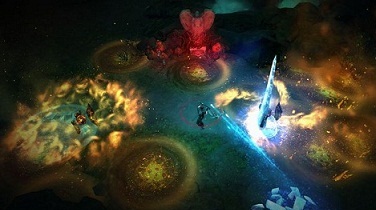
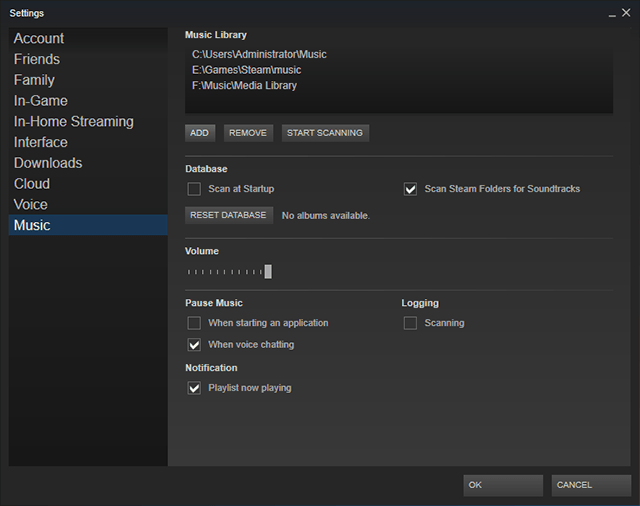
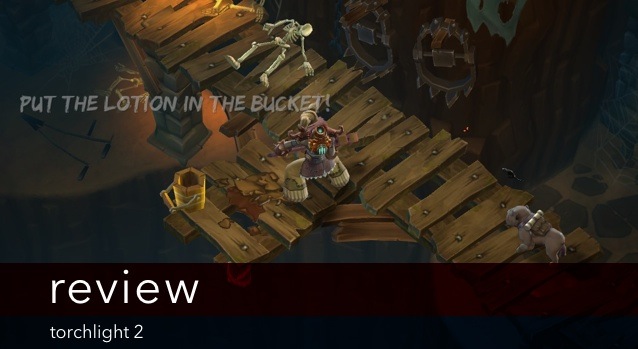

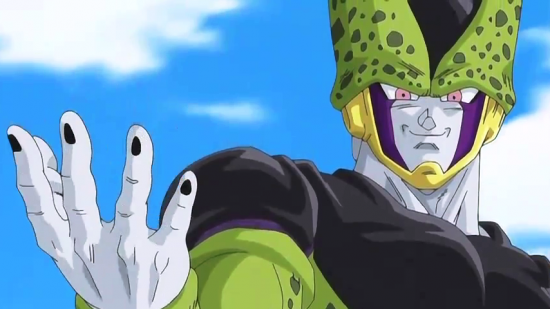 Dragon Ball XenoVerse How to: Cell Mentor Quest Guide
Dragon Ball XenoVerse How to: Cell Mentor Quest Guide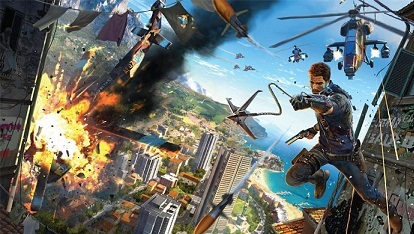 Just Cause 3 System Specs (Minimum / Recommended)
Just Cause 3 System Specs (Minimum / Recommended)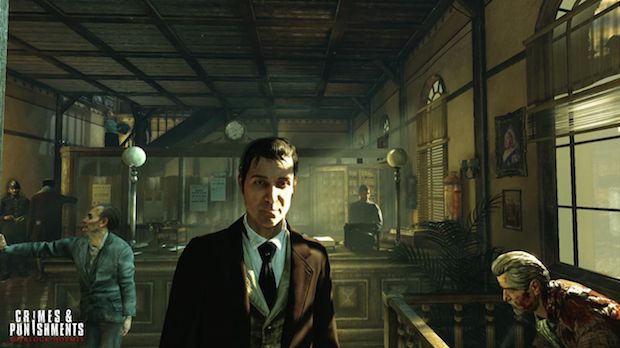 Sherlock Holmes: Crimes and Punishment Review
Sherlock Holmes: Crimes and Punishment Review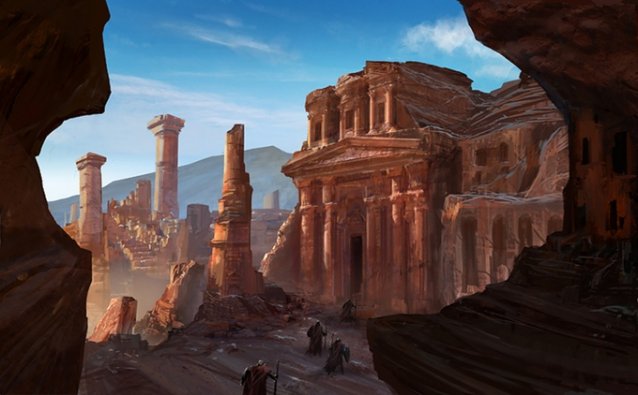 Unsung Story is a Warning to Kickstarter Backers
Unsung Story is a Warning to Kickstarter Backers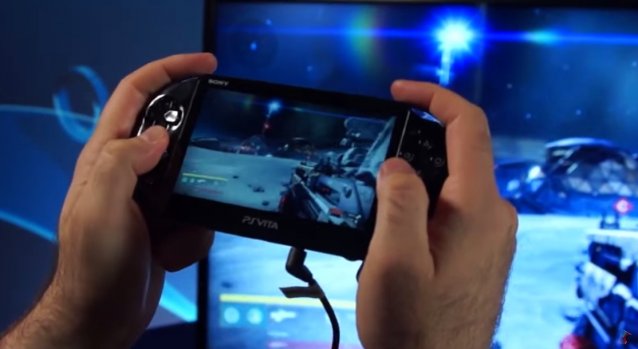 10 Gaming Hacks Every Gamer Should Know
10 Gaming Hacks Every Gamer Should Know